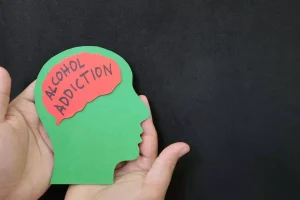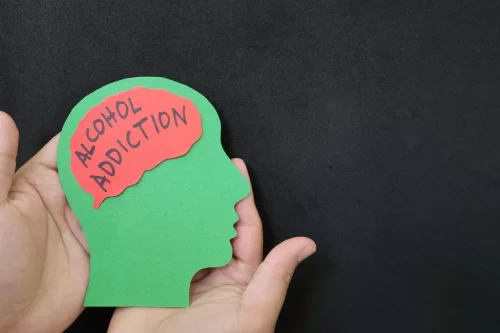
They believe that no amount of help is needed, there is no help available, or that treatment can’t help them and recovery is unattainable. Despite the physical and psychological consequences of drinking and taking drugs, individuals who have this disease, view their addictive behaviors differently than those who don’t. In order to test this proposition, I asked volunteers who had a self-diagnosed phobia about snakes to volunteer for a study designed to help them reduce their fear (Cooper, 1980). When participants arrived at the laboratory, they were introduced to Oz, our 6-foot boa constrictor, that was innocently curled up in a glass tank.

Forced Compliance Behavior

Sometimes, the ways that people resolve cognitive dissonance contribute to unhealthy behaviors or poor decisions. Cognitive dissonance can often have a powerful influence on our behaviors and actions. It doesn’t just influence how you feel; it also motivates you to take action to reduce feelings of discomfort. Sometimes learning new information can lead to feelings of cognitive dissonance. For example, if you engage in a behavior that you later learn is harmful, it can lead to feelings of discomfort. People sometimes deal with this by finding ways to justify their behaviors or findings ways to discredit or ignore new information.
- Cognitive dissonance can have many different causes, including addiction, a desire to meet the expectations of others, fear of change, and trauma.
- We usually like to believe that we are logical, consistent, and good at making decisions.
- Linder, Cooper & Jones (1967) suspected that some of the changes made in Rosenberg’s replication were not trivial, but vitally important.
- It is not a sentiment or a preference, but rather a motivational necessity that people had to accommodate.
- The prediction that people can experience dissonance vicariously is based on a combination of dissonance theory with social identity theory (McKimmie, 2015; Tajfel, 1970; Tajfel & Turner, 1986; Hogg, 2001).
Cognitive Dissonance Treatment In Sober Living
- Because people want to avoid discomfort, cognitive dissonance can have a wide range of effects.
- Or we might convince ourselves that the negative health effects have been overstated, or that our health will deteriorate in the long run anyway.
- Our daily research-backed readings teach you the neuroscience of alcohol, and our in-app Toolkit provides the resources and activities you need to navigate each challenge.
- Cognitive dissonance is the discomfort we experience when we hold two related but conflicting thoughts, beliefs, or attitudes in our mind at the same time.
Awake Therapy, a telehealth company that provides video and telephone psychotherapy, counseling, and coaching to individuals in over 40 countries worldwide. He is also the curator of the popular mental health and wellness website, Therapytips.org. Because the CDS is the core motive of the model and could vary depending on the induction situation, we must get closer to standardized instruments. The prevalence of a unique tool should permit comparison and reliable expected effects (i.e., size and quality). Collectively, the methodological issues concerning assessment in CDT invite consideration of the examination of regulation as a secondary goal for now. For example, cognitive dissonance and addiction a person who is the perpetrator versus a third-party observer of an injustice might want to maintain BJW while avoiding feelings of guilt or social censure (see Chaikin & Darley, 1973).

The Drive Properties of Dissonance: Reality or Metaphor?
- Cognitive dissonance is the tension that is perceived by the conflict of a belief and an opposing desire with which the mind is faced.
- Moreover, as one of the rare social psychology theories that propose a general pattern characterizing the human psyche and construction of reality, CDT is a very important theory for the field.
- Despite our constant frustrations with inconsistencies in others, none of us can honestly deny the presence of incongruence within ourselves.
- In order to test this proposition, I asked volunteers who had a self-diagnosed phobia about snakes to volunteer for a study designed to help them reduce their fear (Cooper, 1980).
It is time to evaluate and create a plan that allows you to become aware of the way you process decisions. These decisions can be the difference between staying sober or having a relapse. Some of that dissonance can be a good thing, but too much (or too much unresolved tension) means we’re constantly at conflict with ourselves.
- We asked participants to ingest a pill as part of what they thought was a completely separate study.
- This can help be able to detect any underlying mental illness that can be a major contributor to someone’s addictive behavior.
- Rather than creating change as a direct function of its magnitude, reward seemed to have had the opposite effect in the dissonance situation.
- Positive psychology is a treatment approach that believes all people want to lead fulfilling and meaningful personal and professional lives.
- The need to reduce dissonance led people to change their attitudes in the direction of their public statements.
- Camille brings a warm and personable approach to her work, fostering strong connections built on trust and empathy.
Dan brings a unique and modern perspective to substance abuse and the problems faced by addicts, families, and society. She is also the the Co-Host of the popular Elevate Experience Podcast, a no-holds-barred look at addiction and the power of effective treatment. Angie maintains involvement with the day to day operations, continually looking for ways to improve and innovate. Mike is highly organized, and plays an integral role in helping families and their loved ones navigate the admissions process. His communication skills, organizational abilities and natural ability to form genuine connections with others are among his greatest strengths. At Elevate, we consider and employ various therapies throughout our holistic approach to mind-body-spirit addiction recovery treatment.
Add a Comment